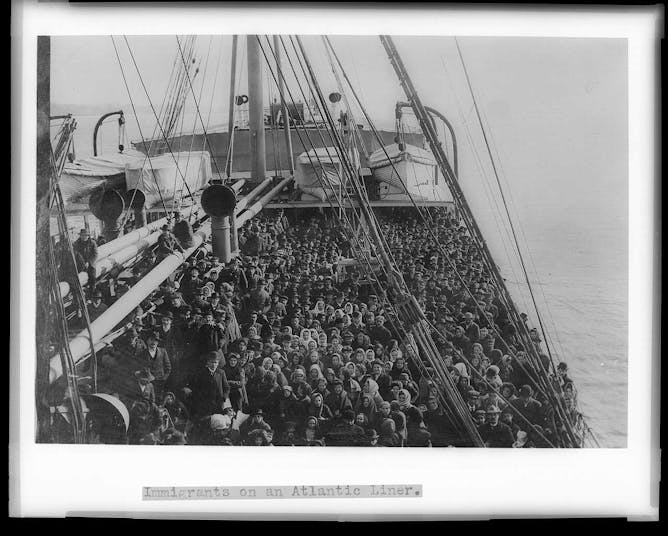|
Doug Ford believes he is saving money by cancelling Ontario’s basic income pilot project. But is that true? “The evidence to date is that a basic income guarantee can be an effective strategy to reduce food insecurity and improve health outcomes, saving public dollars,” writes Catherine L. Mah from Dalhousie University today in The Conversation Canada.
Canadian lawyers recently travelled to the Philippines to investigate human rights abuses. What they found was shocking. Petra Molnar and Anna Su from the University of Toronto describe how the war on drugs led to the murder of a young father, who was just 18 years old.
In the United States, the immigration debate has brought an old song back into the spotlight. Neil Sedaka’s 1975 hit, “The Immigrant,” seems even more relevant today, says Robert Morrison from Queen’s University.
And finally, will artificial intelligence replace scientists one day? AI can make better predictions than humans. But it still can’t explain why it predicts what it does, says Amar Vutha from University of Toronto.
|

Lisa MacLeod, Ontario’s minister of children, community and social services, announces an end to the province’s basic income pilot project on July 31, 2018.
THE CANADIAN PRESS/Chris Young
Catherine L. Mah, Dalhousie University
Research shows that guaranteed basic income programs spur economies and improve mental and physical health. That's why Ontario's decision to scrap the province's pilot project is such a bad idea.
|

Ephraim Escudero’s child holds a photo near by his memorial. The father of two was murdered in the brutal drug war of Philippines President Rodrigo Duterte.
Sheerah Escudero
Petra Molnar, University of Toronto; Anna Su, University of Toronto
From the war on drugs to a crackdown on human rights and environmental activists, life for Filipinos is increasingly nightmarish.
|

A top hit in 1975, Neil Sedaka’s song “The Immigrant,” proves its continuing relevance, with the rise in xenophobia in the United States. Here people on an Atlantic Liner arrive at what is probably Ellis Island, the gateway for over 12 million immigrants to the U.S. from 1892 to 1954.
Library of Congress
Robert Morrison, Queen's University, Ontario
Neil Sedaka's song “The Immigrant” was a top hit in 1975, but today it seems even more relevant, as debates rage in the United States over immigration, repatriation and racism.
|

(Shutterstock)
Amar Vutha, University of Toronto
Machine learning is changing the world in ways that we are just beginning to appreciate. But could it change the way we do science and the reasons why we do science?
|
Politics
|
-
B. Jessie Hill, Case Western Reserve University
A law professor writes "the future of Roe v. Wade looks tenuous." That gives more power to the states -- including four that have passed "trigger laws" to outlaw abortion if Roe is overturned.
|
|
Environment + Energy
|
-
Sharon George, Keele University
Every day we throw away plastic and every day we're reminded of its environmental impact. Why can't something be done about it?
|
|
Health + Medicine
|
-
Emil Jeyaratnam, The Conversation; Wes Mountain, The Conversation
What is it that makes us feel drunk when we drink? And why do we keep drinking if it can make us feel so terrible?
|
|